When It Feels Like You Have Zero Autonomy, Try This

Autonomy - or lack thereof - is something that comes up a lot when physicians don’t feel satisfied in their jobs, but what if we have more agency than we tend to believe?
While there are certainly things we can’t control in our jobs, we do have autonomy and the power to choose in many areas.
Ultimately, we have a lot of choices and the power to exercise them.
How do we change our perspective on autonomy?
In this episode, I’m going to share how to focus on the autonomy we do have.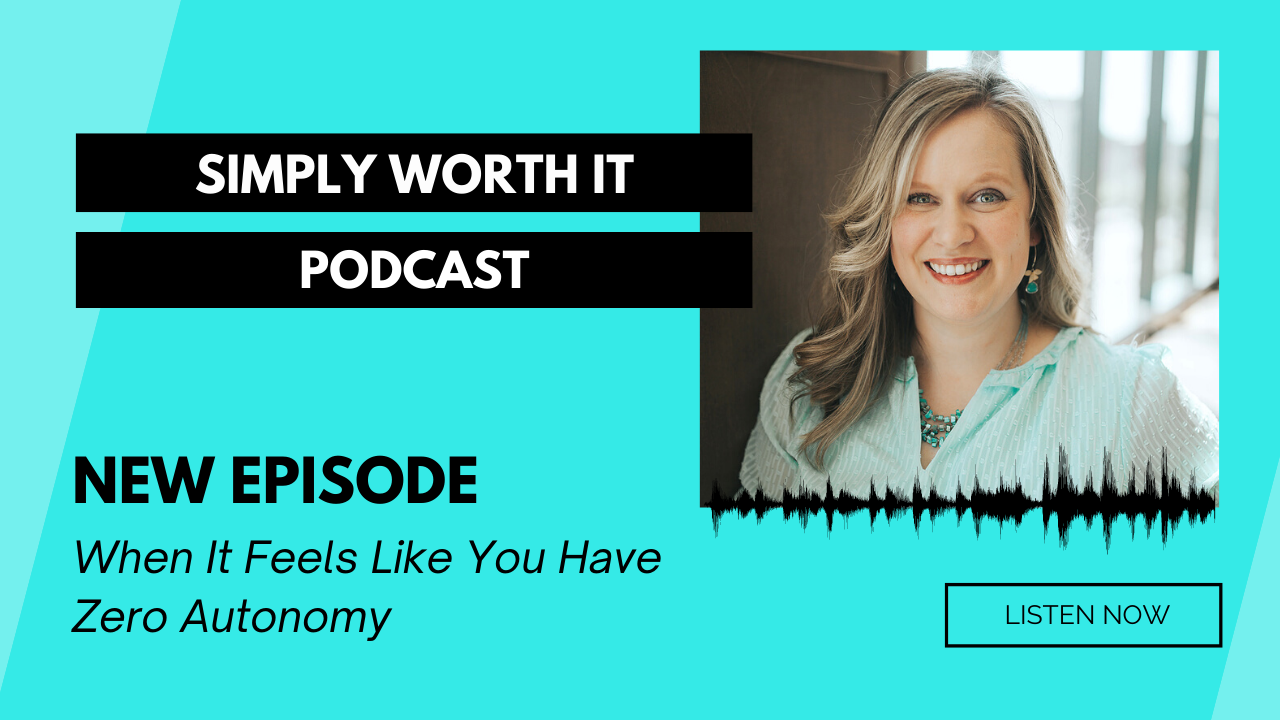
Three Things You’ll Learn In This Episode
- Why we’re not powerless
Are there places where we have more direct control than we think? - The limiting belief that makes us feel powerless
When we believe we have zero autonomy or agency, are we giving our power away? - How to own your autonomy
How do we start acknowledging and exercising our authority?
You Know How to Negotiate, But Where Do You Find the Right Job? with Dr. Lara Hochman
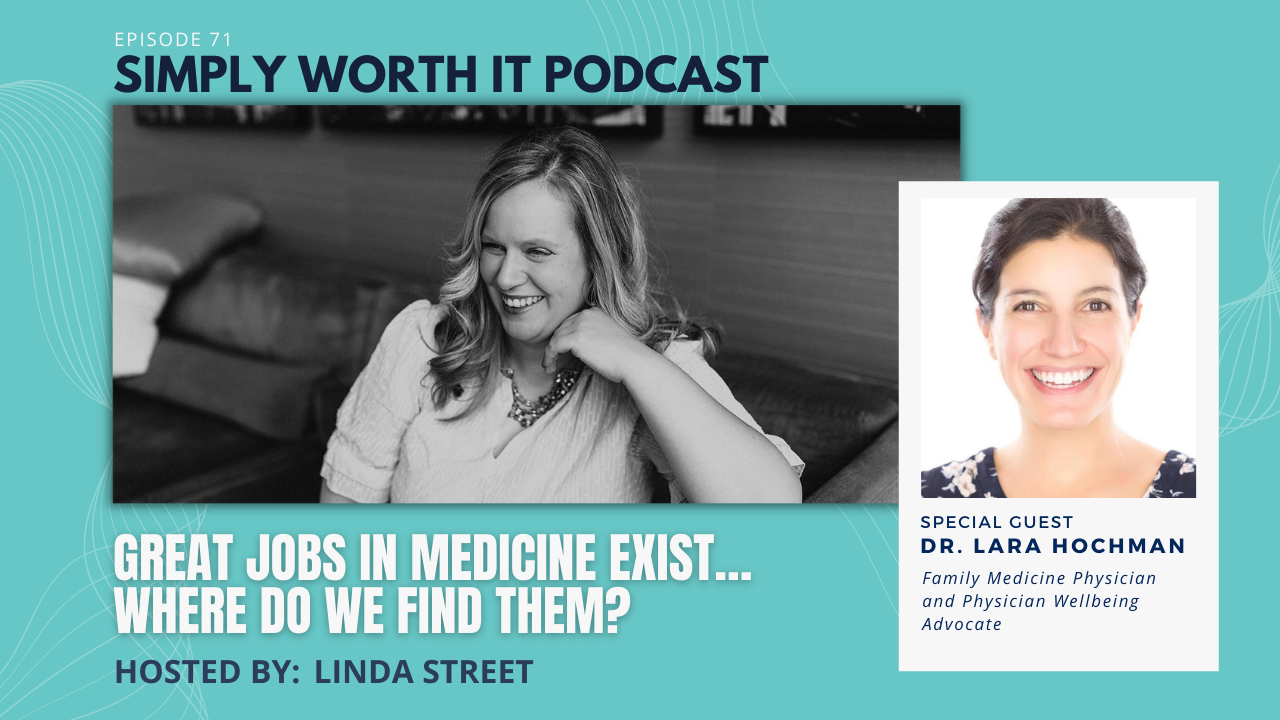
It’s no secret that a lot of physicians find themselves burnt out and disillusioned with practicing medicine to the point of walking away from medicine entirely.
What if we could find a job that works for us instead of trying to contort ourselves into an ill-fitting job?
I talk a lot about this from a negotiation angle, but how do we actually find the jobs that are a better fit for us and evaluate potential employers?
In today’s episode, I’m joined by Family Medicine physician and physician wellbeing advocate, Dr. Lara Hochman.
She shares how she’s breaking the burnout cycle and evaluating opportunities by matching physicians with physician-owned practices.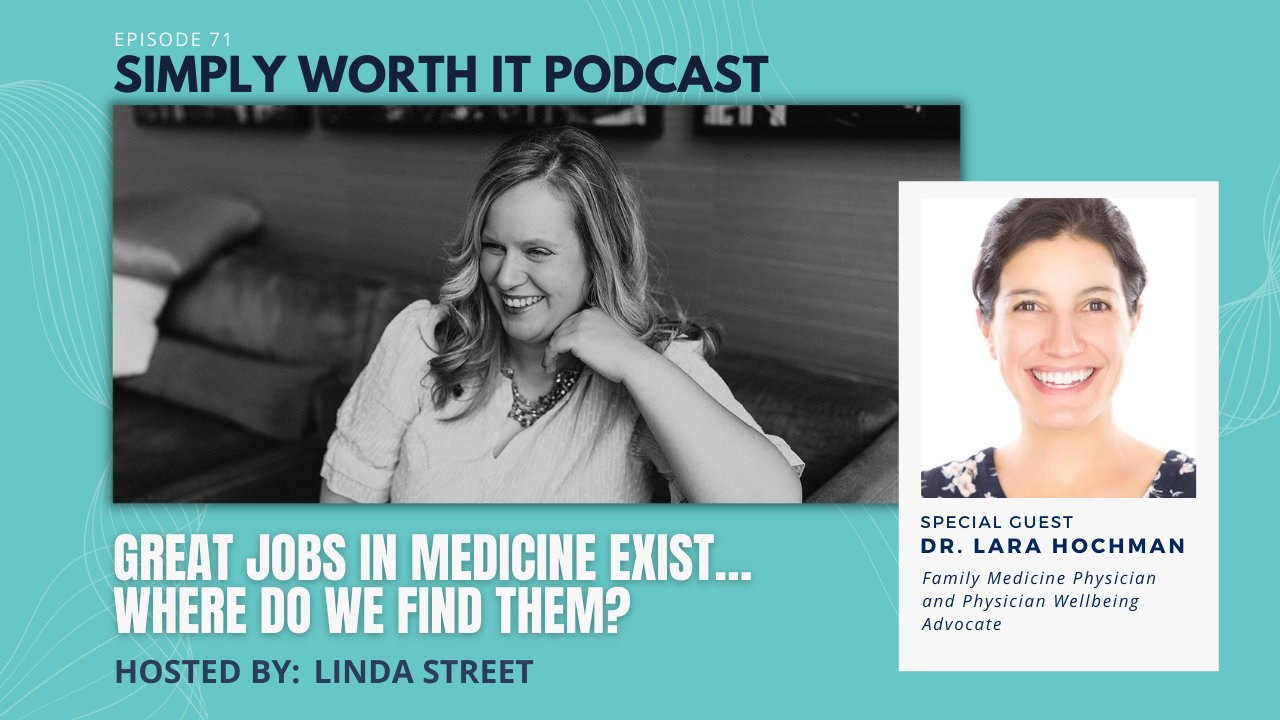
Three Things You’ll Learn In This Episode
- How to create a long, fulfilling career
The brokenness of many jobs have cost us a lot of talented physicians. How can we keep doctors in medicine working jobs they really love? - What we need to be asking about potential employers
Most employers are on their best behavior during an intervi...
2 Powerful Negotiation Lessons From a Slightly Disastrous Real Estate Deal
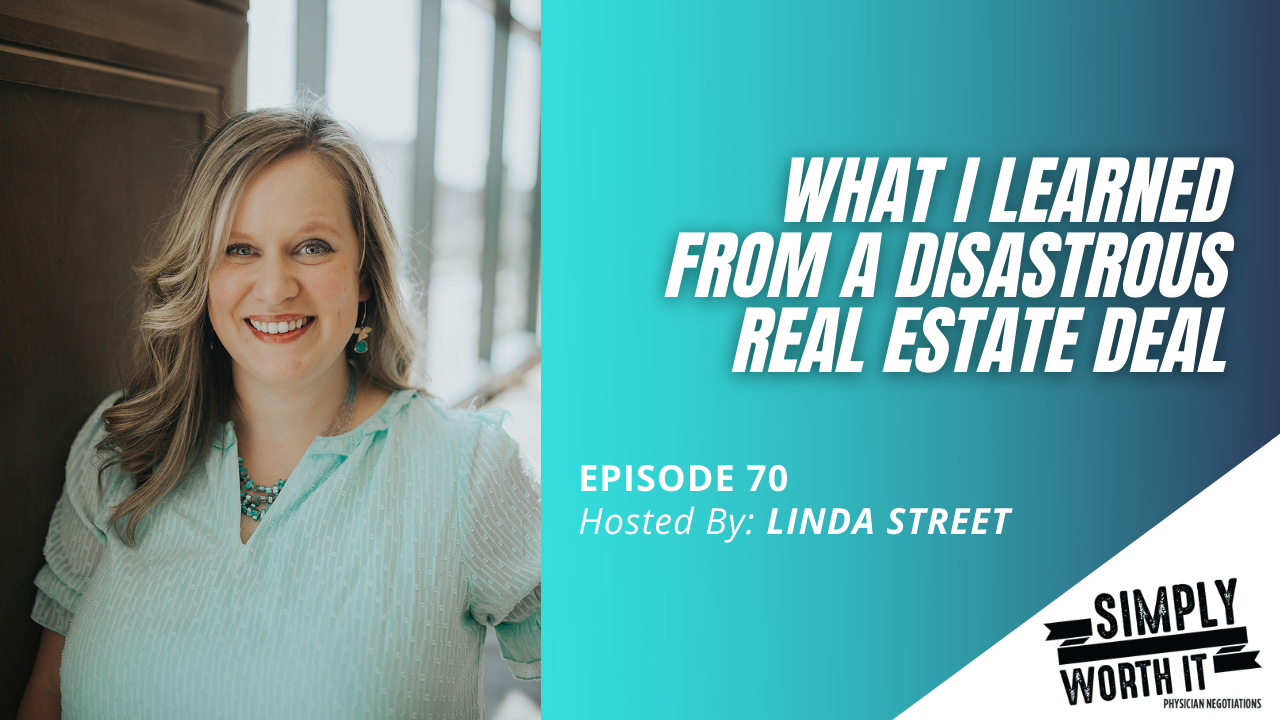
I recently dipped my toes into the world of real estate investing, and what I found really interesting is how transferable the skills we use to negotiate our contracts are in other arenas.
I didn’t get the result I was looking for, but I can safely say that my negotiation skills gave me the tools to get my offer accepted and walk away when the deal wasn’t serving me.
So what are the 2 contract negotiation tools that showed up in my foray into real estate?
In this episode, I share why negotiation is a skill you’ll use a lot more than you think.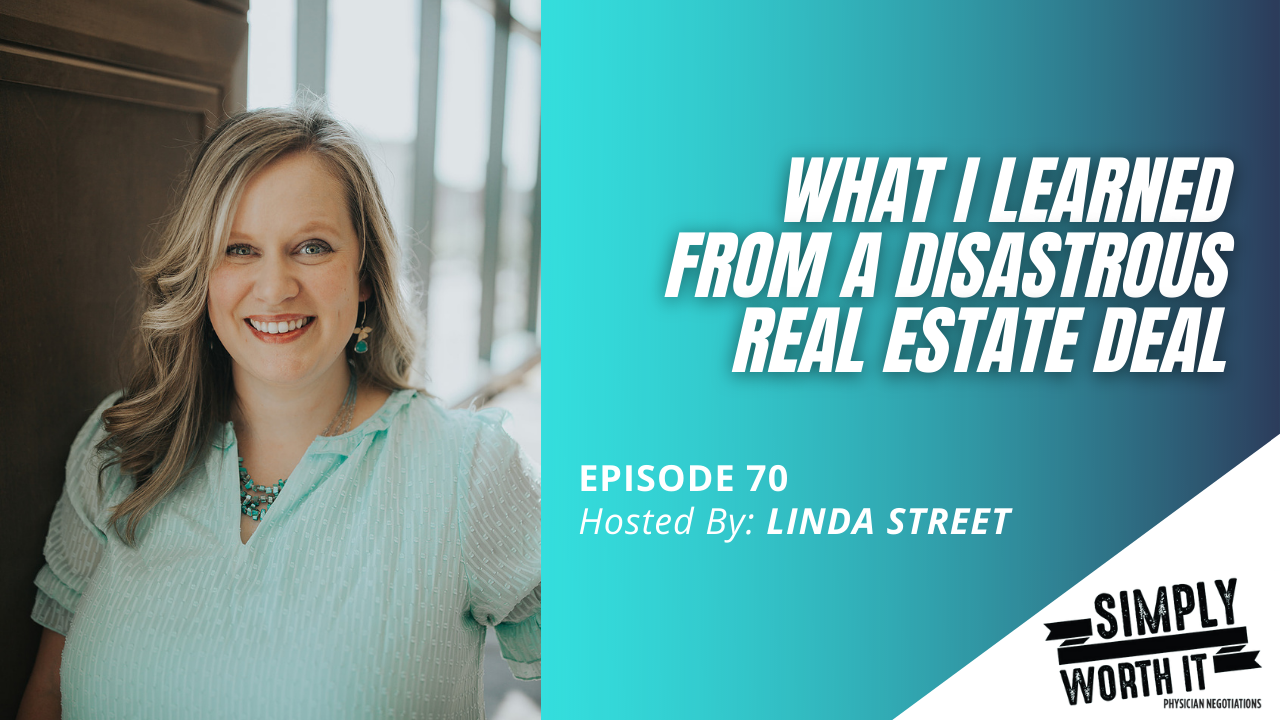
Three Things You’ll Learn In This Episode
- Why negotiation is an important life skill we use everywhere
Negotiation isn’t just a skill set you use when you’re negotiating a contract, where else does it show up? - Simple ways to sweeten the deal and make it a no-brainer for the other side
What did we do to get our real estate offer accepted, beating our cash offers for more money? - Why we ultimately walked away from the deal and what it teaches...
The Crown Jewel of Every Negotiation (Hint: It’s Not Money)
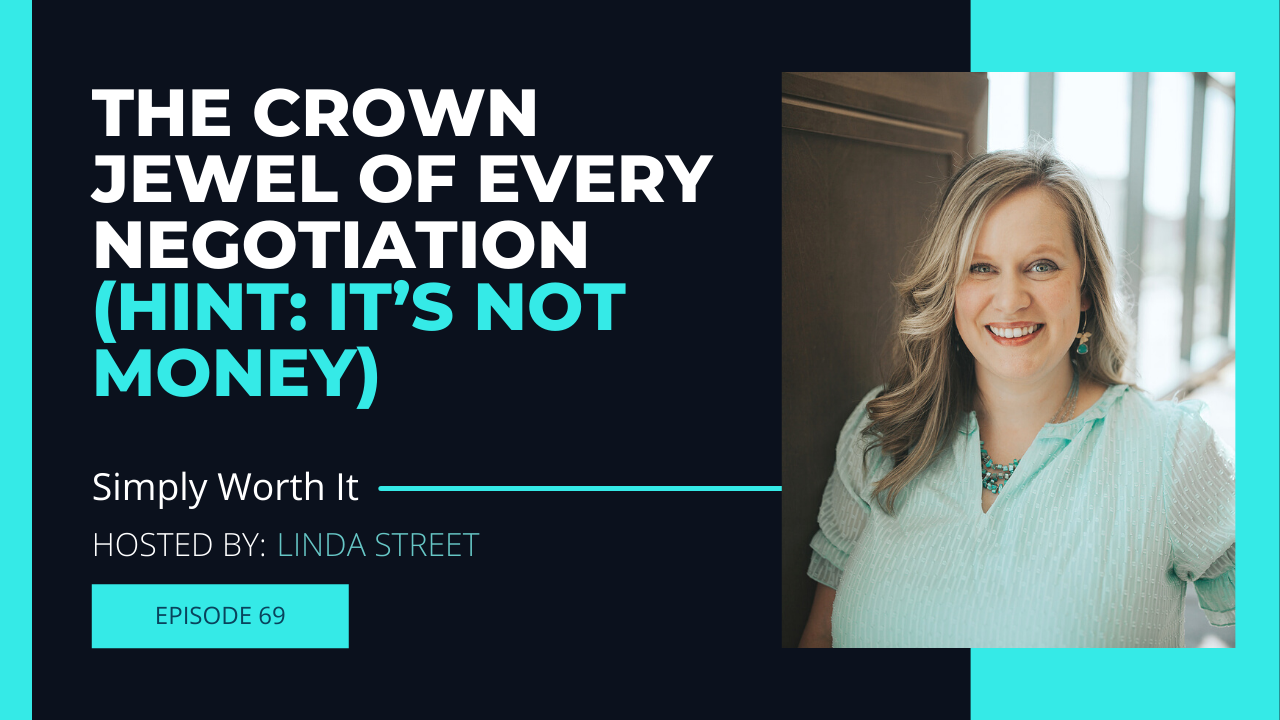
For many of us, the concept of negotiating for a great contract is focused on money and time, but there’s actually one category that is way more valuable.
Energy is a resource that we should aim to maximize and advocate for in a negotiation because it drives our ability to thrive in our jobs.
How do we determine what impacts our energy, and what steps can we take to manage it more effectively and compassionately?
In this episode, I’m going to share how energy factors into a negotiation, and how to make sure it serves us.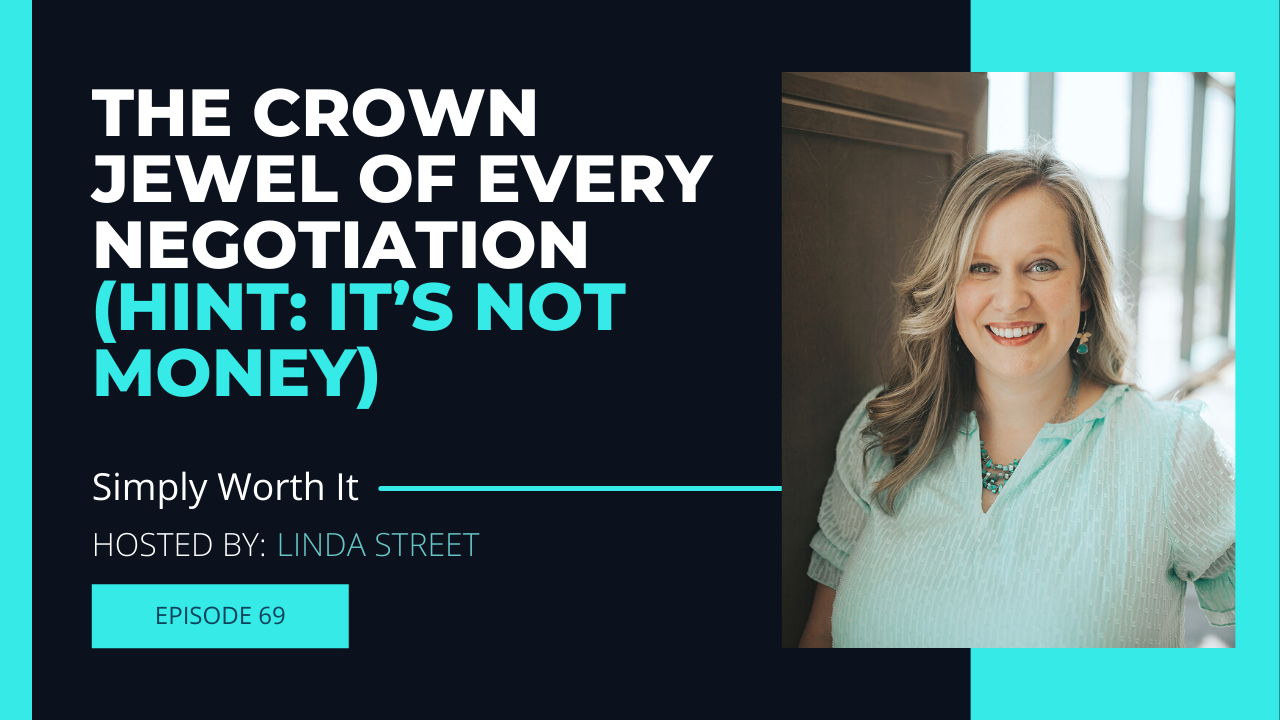
Three Things You’ll Learn In This Episode
- Why we should consider energy as a resource in our negotiations
How do we present our energy as something that’s critical to how well we do our jobs? - How to work more efficiently
Can we control how energized, focused and 100% all-in we are at work? - How to critically appraise your week and see what’s serving us energy-wise
What options do we have to deal with energy depleting tasks?
The Biggest Barriers to a Smooth Exit & The Options You Have to Fight Them
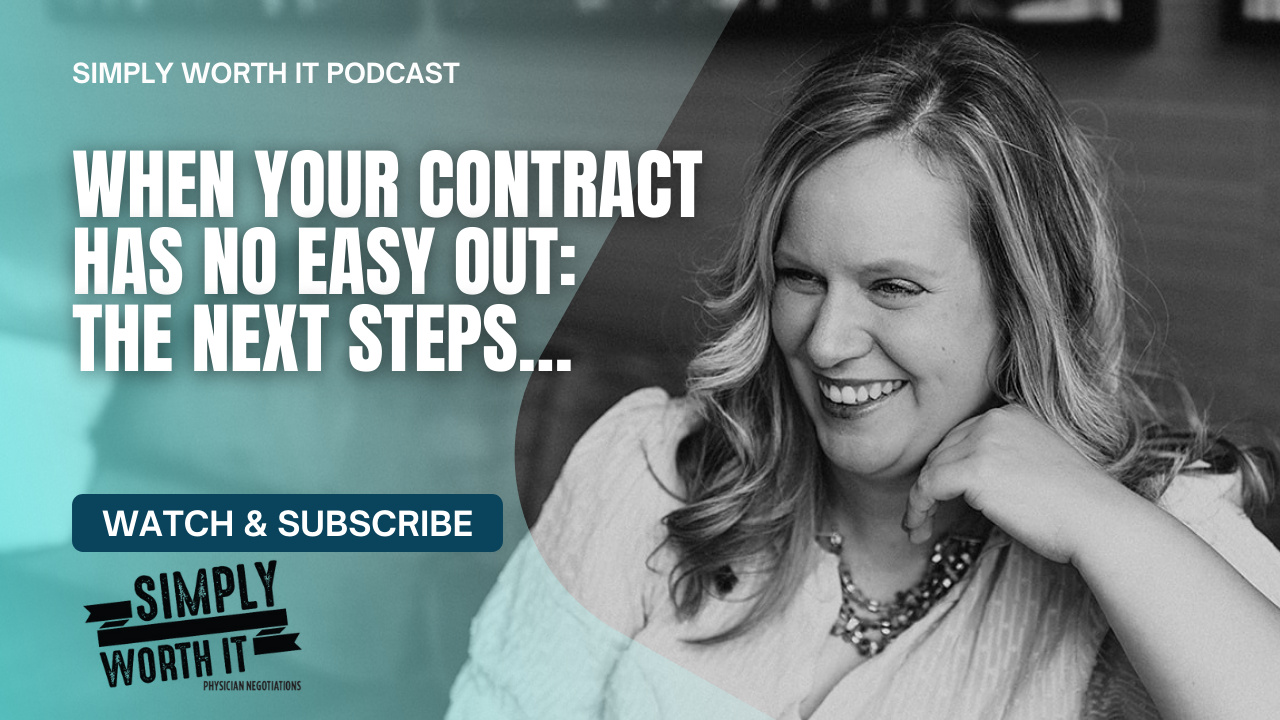
When we decide to leave a job that’s not serving us, it’s not always as easy as resigning and having a smooth exit.
Very often our contracts are riddled with hurdles and landmines that turn a simple exit into more of a full-on extrication, but that doesn’t mean we have no options.
What factors make it hard to exit in a painless way?
How do we deal with long notice periods and non-compete clauses?
In this episode, I pick up from last week and talk about what could possibly make a smooth exit impossible and what you can do about it.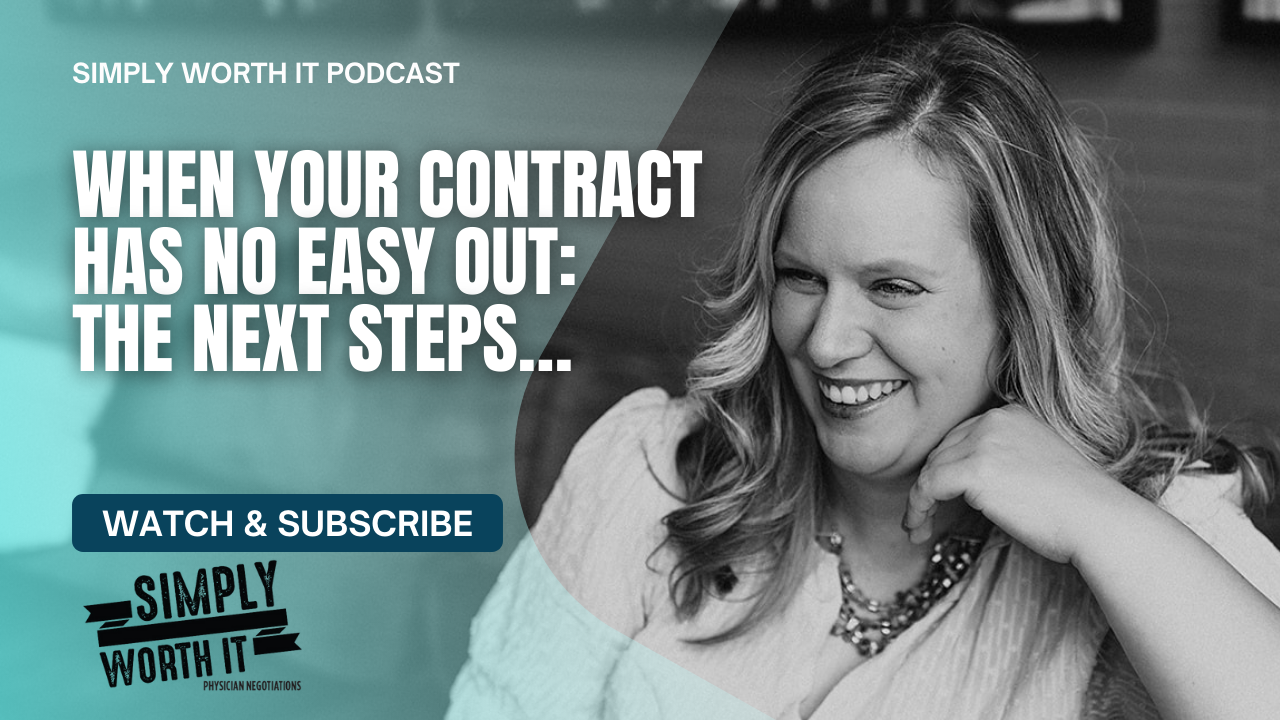
Three Things You’ll Learn In This Episode
- How to prepare yourself to exit your contract
Even if we’re getting a lawyer involved in the contract termination, what “pre-game homework” will make the process easier? - The challenges we might face during a notice period
A notice period can be a really painful time to show up to work. How do we make sure we’re not there longer than we need to be? - The non-compete decision we all have to make
If we’re going to wa...
When Your Contract Has No Easy Out: The First Step You Have to Take
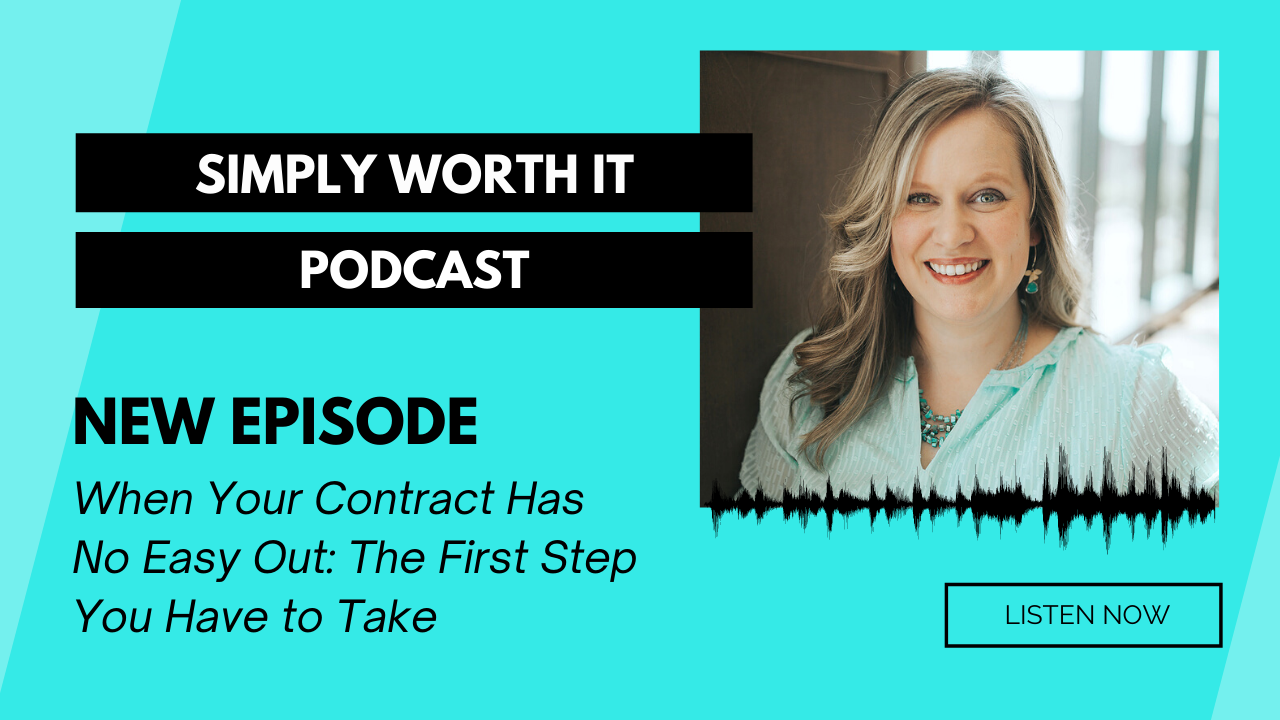
By building up our negotiation skills, we get to put effort into making sure our contracts serve us on the front end and that they have an easy exit.
But what if the contracts we signed a couple of years ago don’t have a painless escape route?
How do we get ourselves in the best headspace to move forward?
It’s easy to get caught up in a shoulda-woulda-coulda tailspin, but shame won’t get us to the next step.
A bad contract doesn’t mean a bad career - there is always a way out.
In this episode, I’m going to talk about the mindset for getting out of a bad contract relatively unscathed.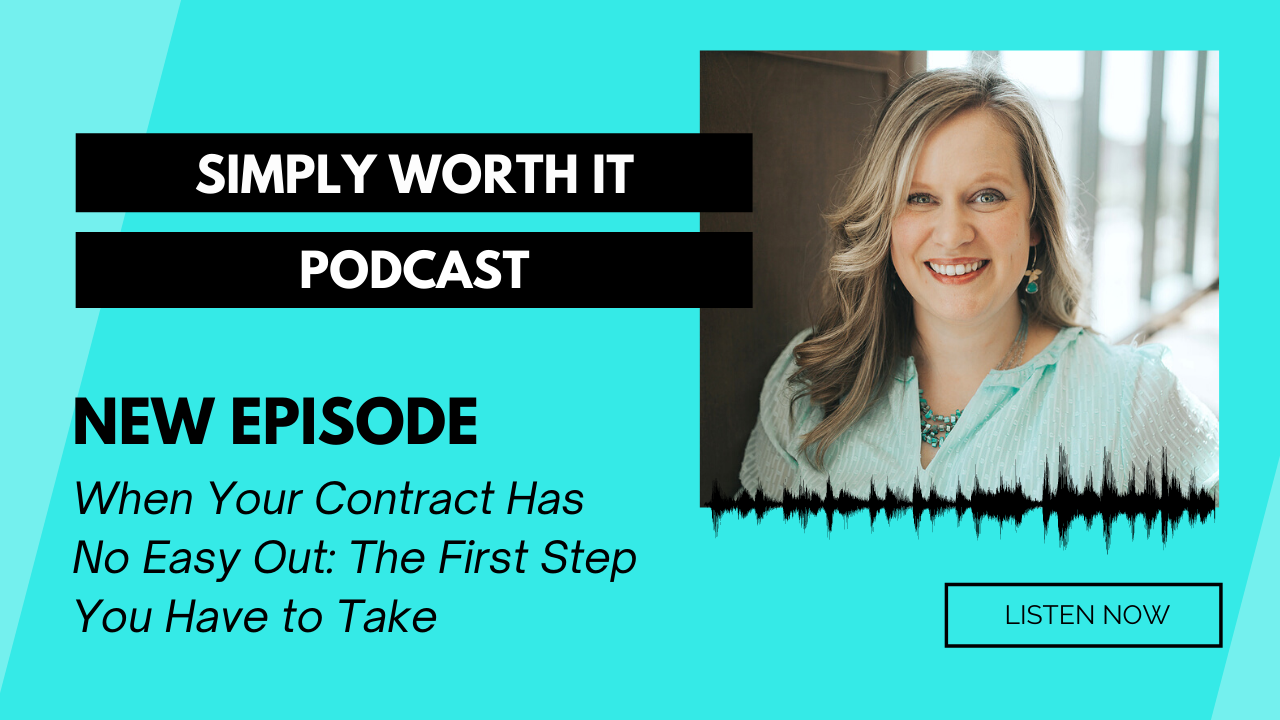
Three Things You’ll Learn In This Episode
- How to create a strong mental cushion for yourself
Instead of feeling bad, how do we get into the headspace to find a solution and confidently take action? - Why there are more solutions to a bad contract than you think
What are some solutions we can start considering to get out of a bad contract? - The importance of going easy on yourself
Why do we have to stop b...
A Financial Independence Roadmap: Dr. Elisa Chiang Shares Wealth Building Strategies Even the Busiest Physician Can Implement
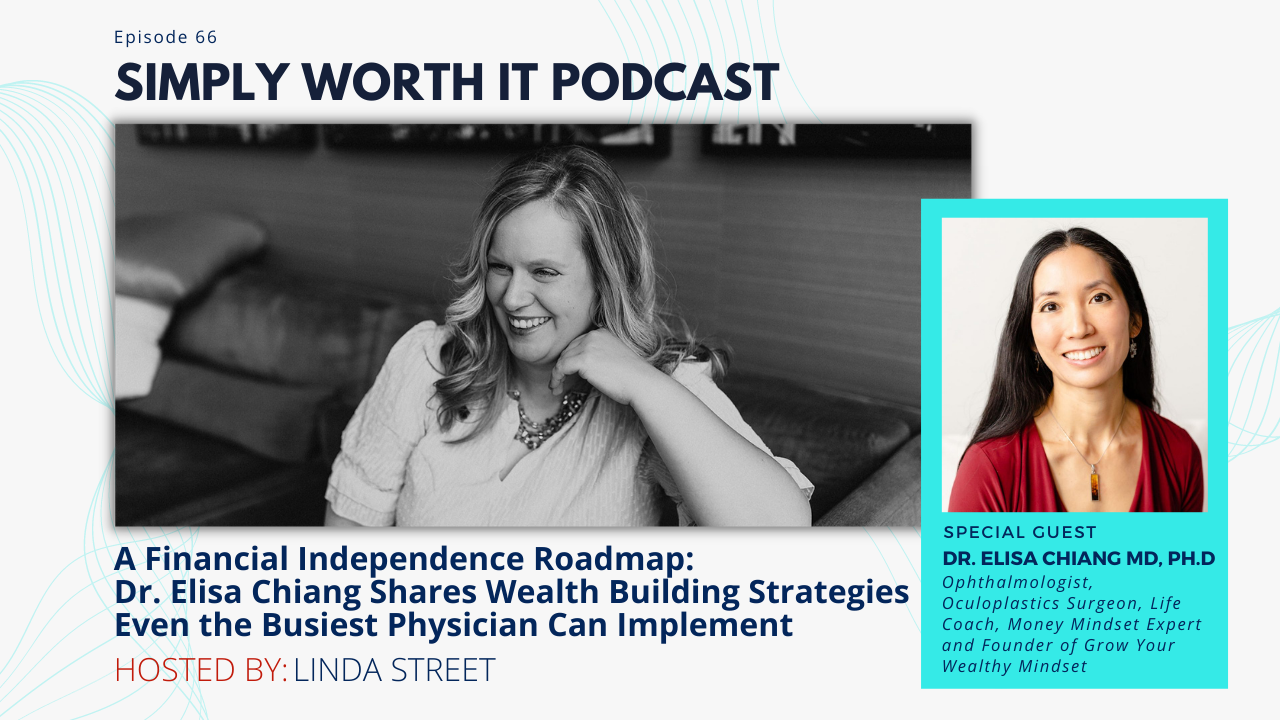
In negotiations, I always stress the power of leverage and improving your next best alternative.
No alternative beats a large stockpile of money earned through your investments.
Earning a high income isn’t the same as being wealthy, so now that we’ve negotiated an amazing salary, the next move is putting that money to work for us.
For the average doctor working full-time and feeling overwhelmed at the thought of starting to invest, what’s the first step we can take?
In this episode, ophthalmologist and oculoplastics surgeon, life coach, and money mindset expert, Dr. Elisa Chiang shares how to take a step toward financial independence.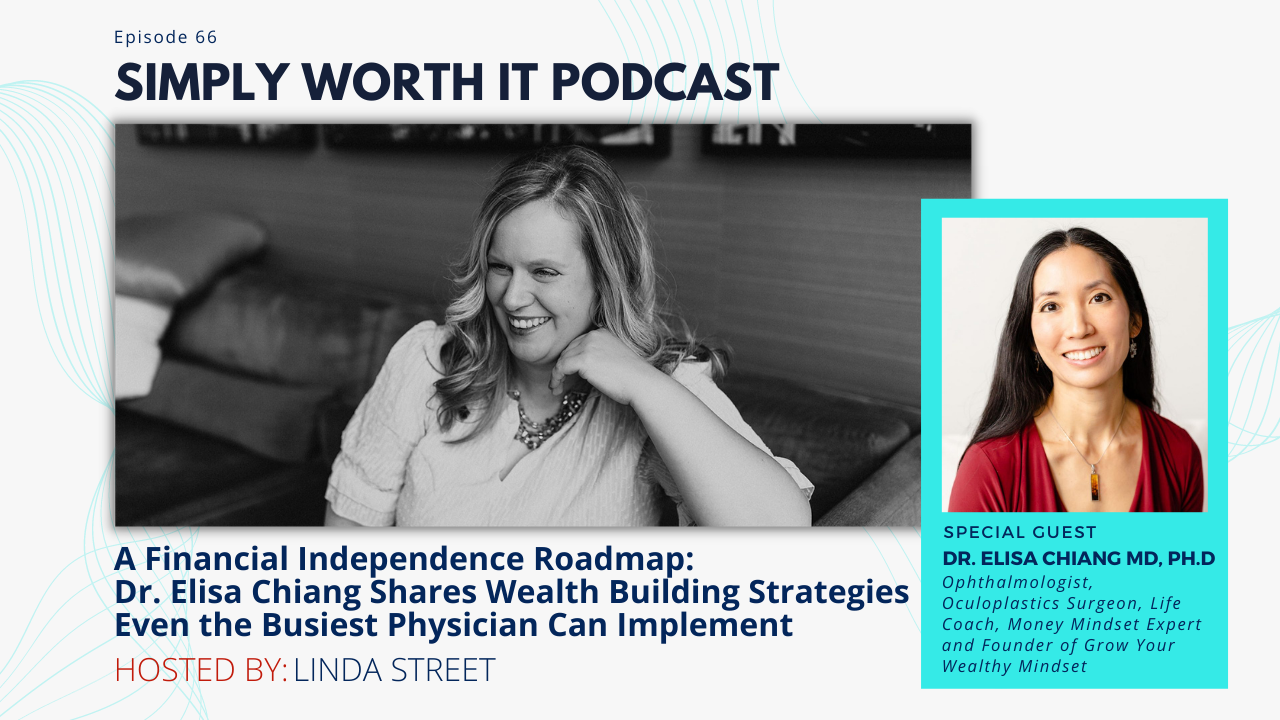
Three Things You’ll Learn In This Episode
- The perks of having wealth
Does financial independence make us stronger at the negotiating table? - The difference between syndication and traditional investing
There are different ways to get involved in real estate, both hands-on and more passive. How do we choose the right path for us? - How wealth-building can...
Gotta Know When to Fold ‘em: The Power of Setting Your Bottom Line Before the Negotiation
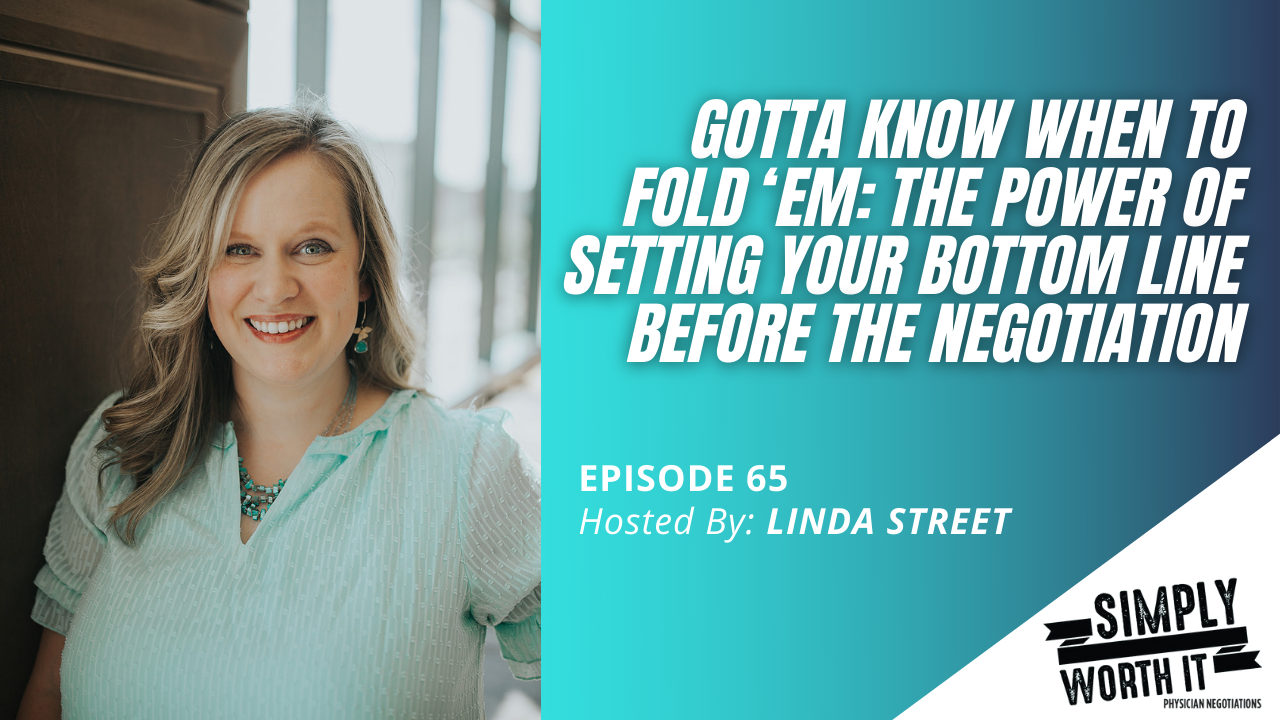
Kenny Rogers sang “You've got to know when to hold 'em, know when to fold 'em, know when to walk away and know when to run.”
These lyrics are actually very applicable to negotiations - especially when it comes to deciding what your bottom line is.
We talk a lot about setting a high expectation goal, but the minimum we’re willing to accept is equally important.
How do we determine what would trigger us to walk away?
Why do we need to set this before the negotiation?
In this episode, I talk about what Kenny Rogers classic song can teach us about negotiation.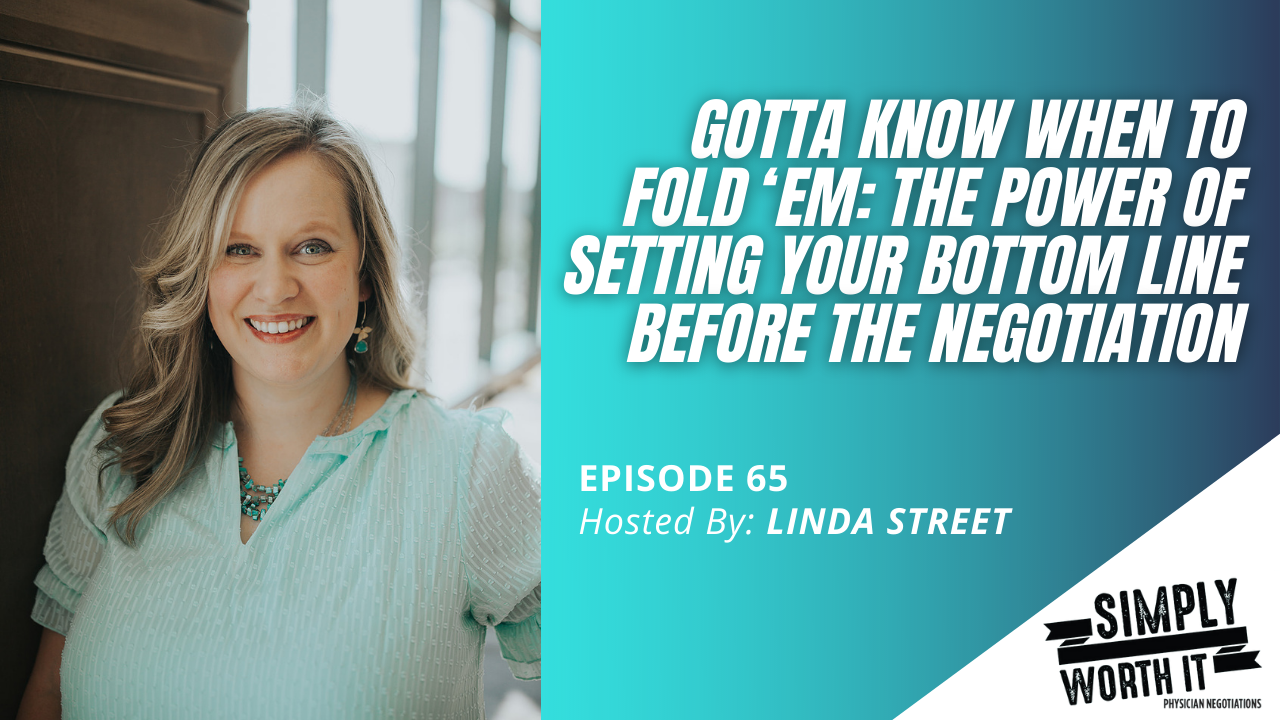
Three Things You’ll Learn In This Episode
- How to determine if you’ll thrive in a specific work environment?
Successful poker players are experts at identifying tells. How do we use our bottom line to notice red flags about employers? - Strategic vs. emotional responses
How do we make sure you’re giving an answer based on a strategic decision and not an impulsive reaction? - The importance of having a similarly attractive alternative...
Dr. Elaine Stageberg on Turning Her Patient Communication Skills Into a Valuable Negotiation Skill Set
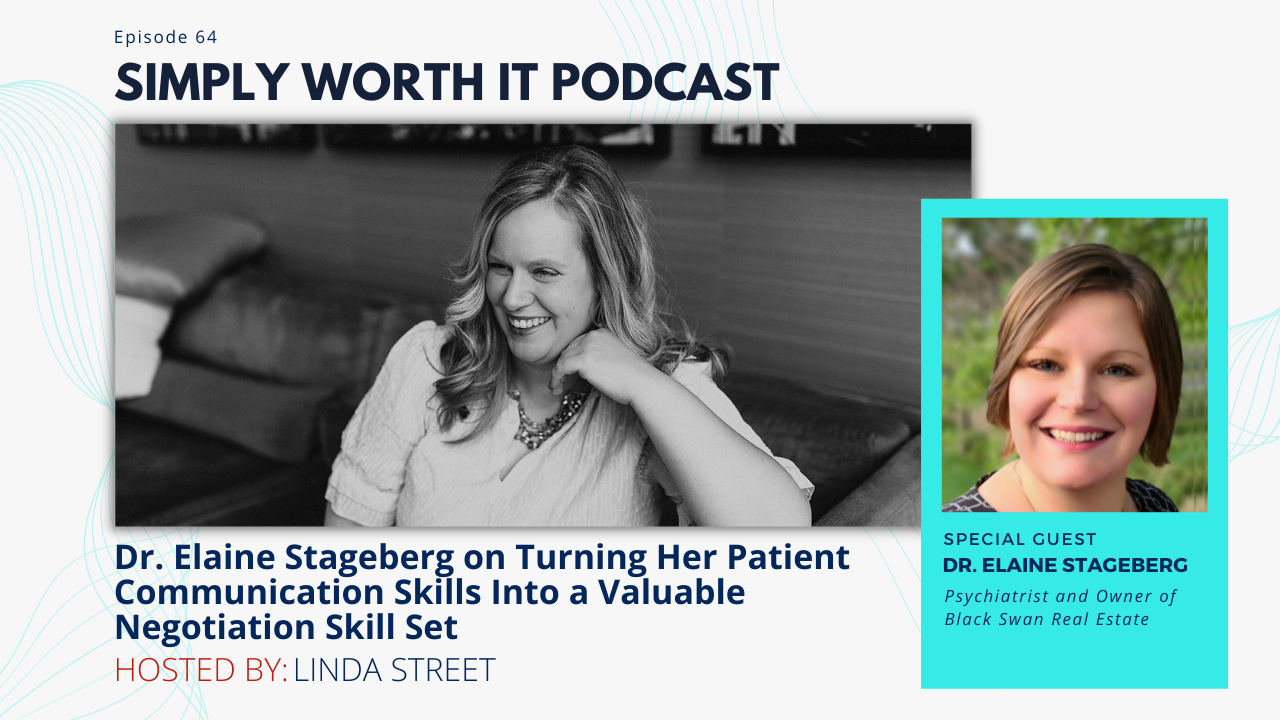
Negotiation is a highly portable and transferable skill.
As physicians, we don’t immediately associate negotiation with what we do on a daily basis, but influencing our patients makes us far more skilled negotiators than we think.
I’m joined by a physician who took the negotiating skills she picked up in her patient interactions and applied them to a highly successful real estate business.
How do we shift our conversational skills into more of a business strategy?
How do we shift our mindset on negotiation so that we see it as a process of collaborative problem-solving?
In this episode, psychiatrist and owner of Black Swan Real Estate, Elaine Stageberg, shares how doctors can apply the negotiation skills we gain from our work to other areas of our lives.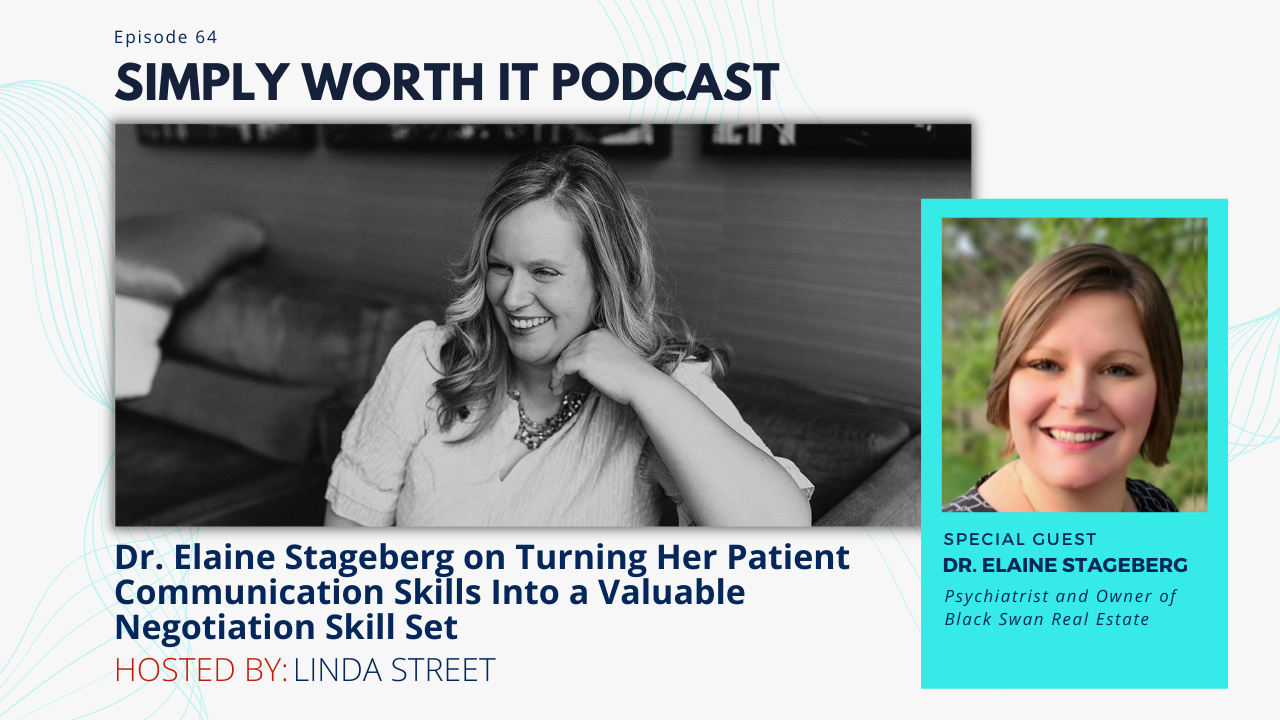
Three Things You’ll Learn In This Episode
- The power of a physician’s negotiation skills
How do we apply the negotiation skills we pick up from communicating with patients to our other business ventures? - Why negotiation doesn’t have ...
Getting Back on Track When the Job Doesn’t Match Your Expectations
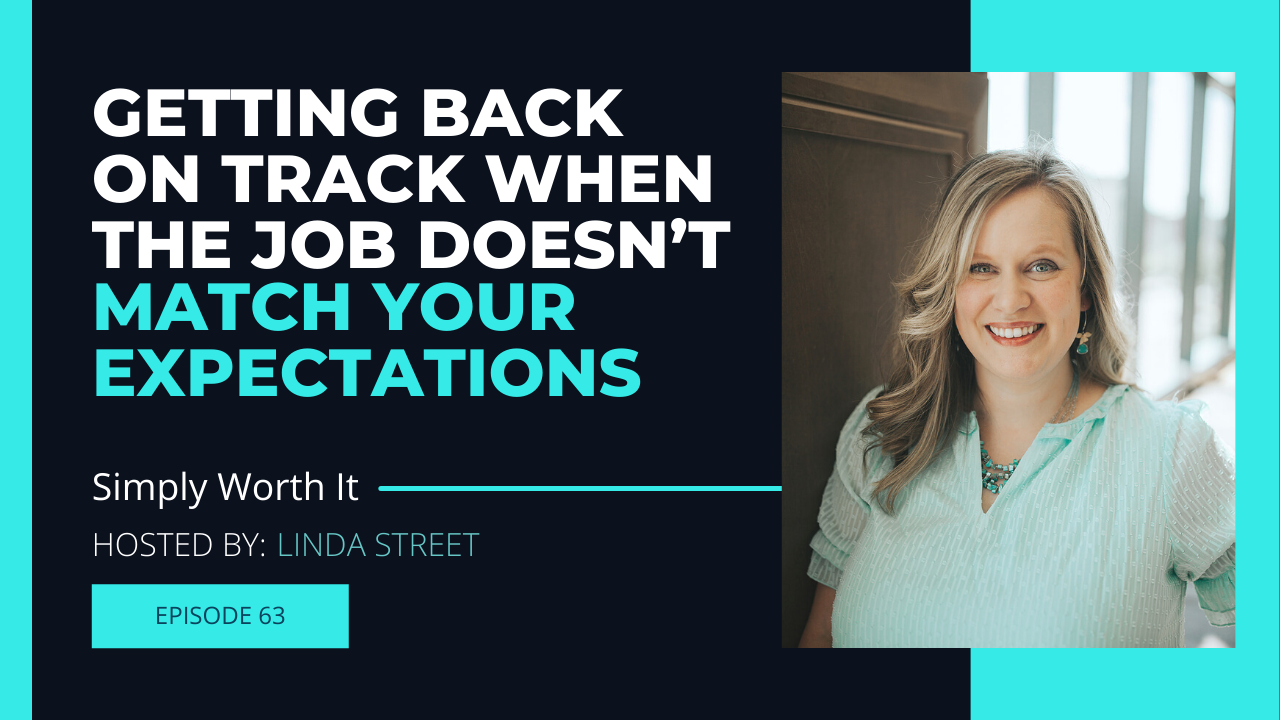
So you’ve successfully negotiated for a contract that aligns with you, but when you show up to work, you realize that it’s not what you signed up for.
Maybe it’s a total bait-and-switch situation, or there are some small boundaries that aren’t being honored.
When reality doesn’t quite match with what was advertised, how do you regroup and go back to the drawing board?
How do you determine if the job is even worth salvaging?
In this episode, I’m going to talk about ways to take action so you can get the job back on track or find something that better serves you.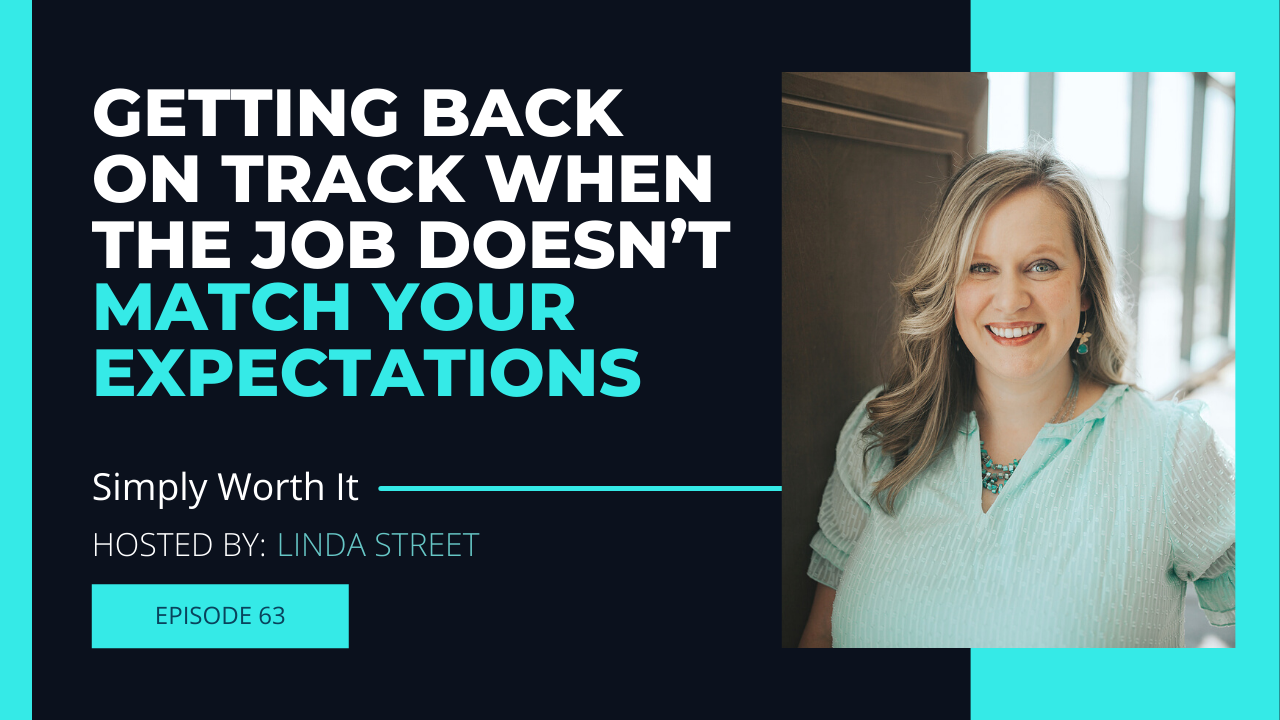
Three Things You’ll Learn In This Episode
- Facts vs. stories
How do we distinguish between the things that really need to be changed and things that our brains are just amplifying? - How to determine your non-negotiables
When you were promised certain things that aren’t being honored, do you try to fix it or is it time to look for another option? - Why leaving a bad-fit environment is NOT a failure
What valuable insights do we ge...

